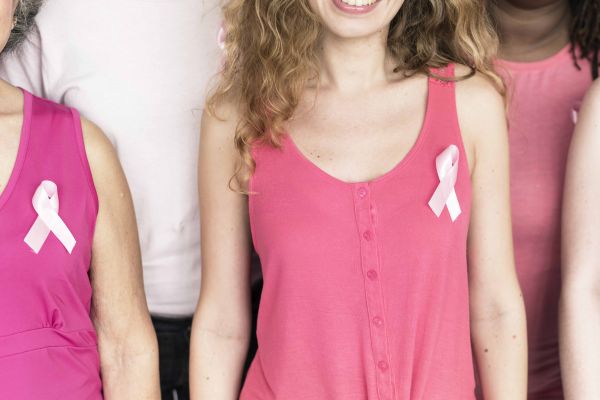What is the best way to get critical medical and health information to those who need it?
Reach people where they are.
For many young women, that means on social media and smartphones.
A group of doctors and public health experts at Roswell Park Comprehensive Cancer Center recently conducted a pilot study that examined the effectiveness of using social media — Facebook in particular — and e-blasts to relay information on breastfeeding to Black women. They published their findings in the Journal of Medical Internet Research.
Addressing Racial Disparities in Breastfeeding
When it comes to the importance of breastfeeding for mothers and their babies, there’s a shortage of information and resources that specifically target Black women. Available information often appears to address white women, making it harder for the messages to reach and resonate with a wider audience. Historically, Black women, especially younger women, breastfeed their babies at lower rates than white women. There’s also a higher risk for more aggressive types of breast cancer among Black women who do not breastfeed.
The Roswell Park team collaborated with the Erie County Women, Infants and Children (WIC) program for help recruiting women to the study.
“We recognized from other research we had previously done on cervical cancer and tobacco that recruiting young Black women, particularly pregnant women, is a real challenge for multiple reasons,” says Deborah Erwin, PhD, a former Director of the Community Outreach and Engagement team at Roswell Park and a co-founder of the Witness Project, a breast cancer education and screening intervention for Black women. “We needed an approach that was going to reach young women and direct calling wasn’t going to cut it. It’s challenging to reach young women in person.”
Social Media Helped Find an Eager, Interested Audience
WIC sent out more than 3,000 text messages to potential participants, inviting them to participate in the study, enroll in a private Facebook page and complete pre- and post-natal surveys on their attitudes and perceptions of breastfeeding.
The text prompt included a survey link so participants could answer a few questions about breastfeeding and provide demographic information. The Roswell Park team also posted fliers with the text code #OurBreastsMatter that women could input to receive an automatic reply with the same survey link.
“When we were pivoting to this design, we had the idea that participants could join a private, secret Facebook group at their own pace, but we realized we had a better success rate if we looked for them on Facebook and sent them an invitation to the group” says Cassy Dauphin, a Health Education Specialist.
As participants provided information, the team reviewed demographic data and 288 young Black women from nearly 500 messages were eligible. The participant group represented 102% of the team’s original goal.
“I think the identity aspect – BlackBreastsMatter having a group name specifically identifying black mothers — motivated people to want to engage more,” Dauphin says.
Providing Breastfeeding Resources After Delivery is Key
The team also learned, through conversations, focus groups and discussions on Facebook, that many of the women didn’t think too much about breastfeeding during pregnancy but more so after their babies were born. That creates a small window in which outreach coordinators and public health advocates can reiterate the importance of breastfeeding, Dauphin says.
“There weren’t a lot of resources available to these women at that time. That’s something we need to improve in our community overall. It became a challenge to educate on something so important but also to have the resources available when they were ready for it,” she says.
Going forward, the team wants to continue its research and outreach efforts using social media and digital channels.
“With us, with the millennial generation, we’re so connected to technology that finding innovative ways to connect with people and provide them evidence-based information will be really important,” Dauphin says. “Active engagement will be what ties everything together.”
As for providing information on the connection between breastfeeding and reducing the risk of aggressive breast cancers, the team found it was an important message to relay but not one that reverberates as loudly now in these women’s lives as it might later.
“I continue to work with the women, and by building a rapport at this stage, we have the opportunity to talk about breast cancer later, once they’re out of the breastfeeding stage and closer to the mammography stage,” Dauphin says.



